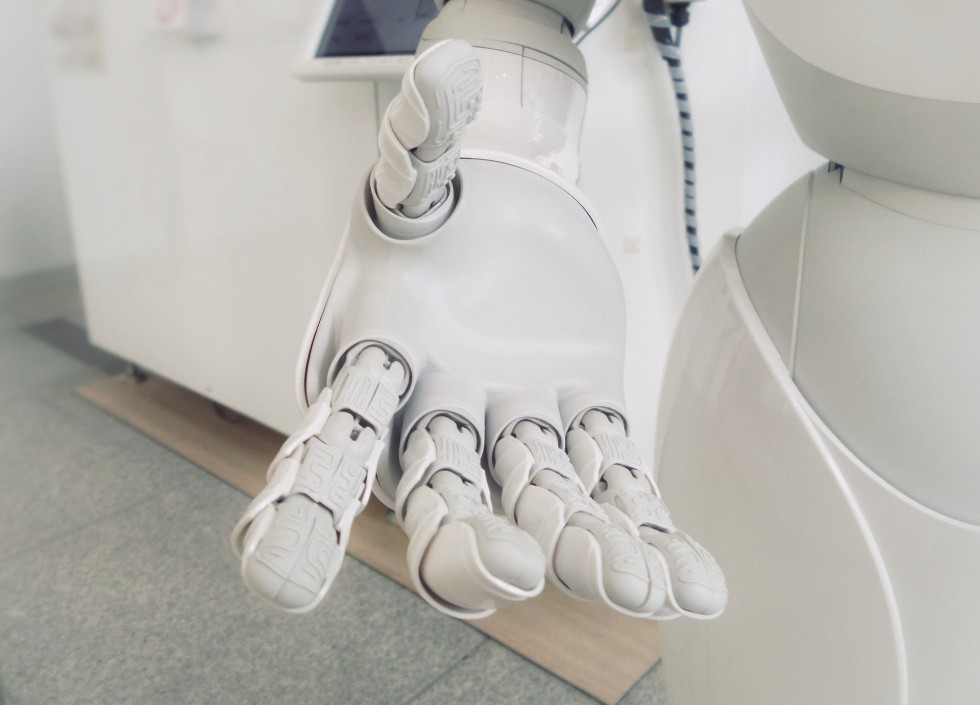Artificial Intelligence (AI) is now an integral part of our daily lives, influencing sectors from healthcare to finance and, now, education. It’s changing how we approach teaching and learning, creating a revolution in the education sector. We’re moving away from traditional classroom settings and towards an era where technology, like AI, plays a pivotal role in disseminating knowledge.
This doesn’t just extend to complex learning systems; it can even be as simple as a student asking an AI tool to “help me to….” From personalized learning to real-time feedback and from administrative efficiency to enhanced accessibility, AI is bringing a significant shift in education. The future of education with AI is not a mere projection, but it is a reality that is reshaping our present.
Personalized Learning Experiences
AI has made personalized learning not just feasible but also efficient and effective. Traditional teaching methods often employ a ‘one-size-fits-all’ approach, disregarding the unique learning needs, pace, and preferences of individual students. AI has disrupted this model by allowing adaptive learning systems to provide a custom learning path for each student.
AI can analyze a student’s learning patterns, strengths, weaknesses, and preferences to tailor instruction and resources. This includes suggesting additional readings for challenging topics, presenting material in a format that best suits the student, or even adjusting the pace of instruction. By meeting students where they are, AI ensures that all learners receive the optimal level of challenge and support.
Streamlined Administrative Tasks
Administrative tasks, though crucial, can often divert resources and time from actual teaching and learning. AI can significantly simplify these tasks through automation. Chatbots, powered by AI, can handle a wide array of responsibilities, like answering common student inquiries, scheduling, grading, and managing student data.
AI can also assist in more complex tasks such as admissions management. By sifting through large volumes of applicant data, AI can help identify prospective students who are most likely to succeed at an institution, leading to a more efficient and successful admissions process.
Insights through Data Analysis
AI’s capacity to analyze large amounts of data is an asset to the education sector. Schools and colleges generate vast amounts of data about students – their performance, attendance, online learning patterns, and more. AI can analyze this data to extract meaningful insights and trends.
Educators can use this data to identify at-risk students, predict future performance, and tailor their teaching strategies. At a macro level, educational policymakers can use AI to make informed decisions about curriculum design, resource allocation, and policy development.
Enhanced Accessibility
AI is making education more accessible than ever before. For students with disabilities or those who speak different languages, AI-powered tools can significantly enhance their learning experience. Text-to-speech and speech-to-text converters, real-time captioning, and language translation tools are just a few examples of how AI is breaking down barriers in education.
Interactive Learning
AI is making learning more interactive and engaging. Virtual Reality (VR) and Augmented Reality (AR), powered by AI, can transport students to different places, times, or even inside the human body. Similarly, AI-driven educational games can make learning fun and improve knowledge retention. This type of active, immersive learning can motivate students and deepen their understanding of complex subjects.

Lifelong Learning
AI’s impact on education is not limited to K-12 or higher education; it also caters to the learning needs of adults. AI-powered platforms can offer personalized upskilling and reskilling programs, adapting to the learner’s pace and schedule. This flexibility can empower adults to pursue lifelong learning, helping them adapt to changing job markets and learn new skills throughout their careers.
Empowering Educators
While there are fears that AI might replace human educators, the reality is quite the opposite. AI serves to empower teachers by taking over repetitive tasks such as grading and administrative duties. This frees up educators’ time to focus on what they do best – teaching and mentoring students. Additionally, insights gleaned from AI can help teachers understand each student’s learning process better, enabling them to provide more personalized and effective guidance.
Real-Time Feedback
One of the significant advantages of AI in education is the provision of real-time feedback. AI-powered systems can evaluate students’ responses during a learning session and provide immediate feedback. This instant input allows students to understand their mistakes right away and learn from them, leading to more effective learning. Moreover, this immediate evaluation and feedback mechanism also allows teachers to address learning gaps promptly.
Scalability in Education
One of the challenges in the current education system is providing high-quality education at scale. With the increase in the student population, offering indxividual attention becomes difficult. However, AI brings scalability to education. AI-powered platforms can deliver personalized learning to a virtually unlimited number of students simultaneously, breaking down geographical barriers and democratizing education.
Mitigating Learning Loss
Recent global events, like the COVID-19 pandemic, have highlighted the risk of learning loss due to disruptions in traditional classroom teaching. AI is instrumental in such scenarios, providing continuity in education. Online learning platforms powered by AI can mimic the classroom experience and offer personalized learning paths, ensuring that students continue their academic journey even when traditional education settings are unavailable. They can even guide students to the best research paper writing services when required.

In conclusion, the future of AI in education is not a distant dream but a reality that we are witnessing today. By personalizing learning, streamlining administrative tasks, offering insightful data analysis, enhancing accessibility, and making learning more engaging, AI is revolutionizing the education sector. As we continue to explore AI’s potential, we can expect even more transformative changes that can redefine teaching and learning as we know it.






I’m seen the world change in ways I never imagined, I find the idea of AI taking over education quite unsettling. When I was young, education was all about human connection—teachers inspiring students, face-to-face discussions, and learning through real-world experiences.
Reading this article about AI in education makes me wonder if we’re losing something fundamental. Can a machine really understand the curiosity and unique needs of a child? Can it replace the wisdom and guidance of a seasoned teacher? I’m not convinced.
Sure, AI might be able to help with repetitive tasks and data analysis, but education is about more than just efficiency. It’s about nurturing young minds, fostering creativity, and building relationships. I worry that in our rush to embrace technology, we might be forgetting the irreplaceable value of human touch and interaction.
Call me old-fashioned, but I believe there’s no substitute for the human element in teaching. The future may be here, but I’m not sure it’s a future I’m ready to embrace.